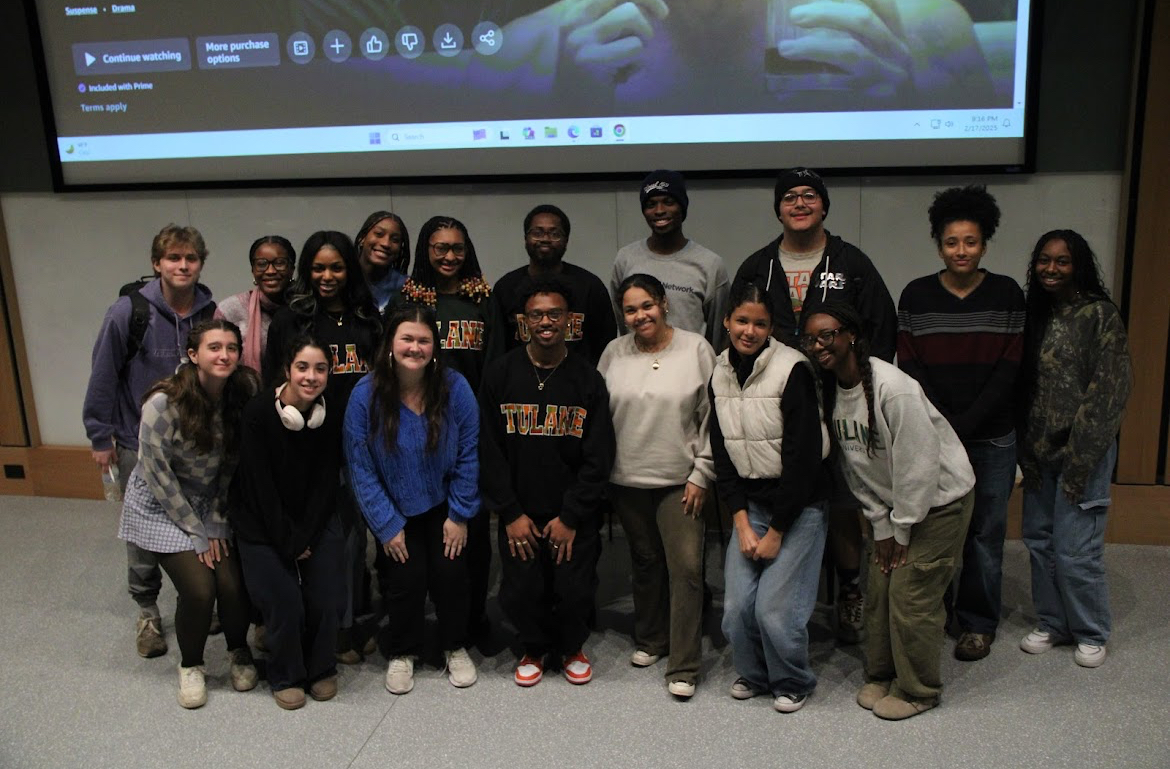All communities should be acknowledged for their cultural contributions. According to Tulane University’s Office of Diversity, Equity, and Inclusion the university “collaborates with university community members and leaders to create, implement, and evaluate programs designed to ensure every single community member can grow and thrive together.”
This year, an array of events was planned in celebration of Black History Month at Tulane. Freshman Mosoba Bidima recounted the Black History Month celebration in the Malkin Saks Commons, and her appreciation for receiving Ashanti Naturals Shea Butter from Tulane’s Center of Academic Equity, as it connects to her Nigerian and Cameroonian roots.
“It’s nice to see everybody in the same space … because usually [Black students at Tulane] spread out, and we’re so far few in between. You never see them all in one place,” Bidima said. “It’s really nice to have events like that so people of color can gravitate towards one area, and then you can see everyone. It’s very unifying and it makes a more relaxed environment.”
Despite these events, Tulane still lacks diversity, as the incoming class of 2028 includes 59.7% white-identifying students and only 6% Black-identifying students. As director of community engagement for the Wall Residence Hall community government, I proposed a Black History Month showing of the film “Moonlight” in Lake Residence Hall Theater.
The event was sponsored by Warren Residence Hall’s community government and The 1963 Collective residential learning community for Black students. Following the film was a discussion from a panel of Black students who spoke on their experience and how it relates to the film.
In addition to this event, I personally reached out to a vendor, Alicia Ebanks, who makes Kente merchandise for Yale University’s African Students Association, to do the same for Tulane students.
As a result, the sweater is now in stock on her website. Reflecting on moments like this, I remind myself of the first admitted Black students at Tulane who were not granted the privilege of authentically expressing their heritage, let alone celebrating the history of their ancestors.
Reynold Décou and Deidre Dumas Labat made history as being the first Black students to graduate from Tulane. However, their successes were not an easy feat, as their white peers and professors tormented them through deliberate acts of racism, making their experience at Tulane unimaginably difficult. Even though the lives of Black students at Tulane have changed since, they remain in the minority at Tulane and many report experiencing racism from their white peers.
As a society, we obviously have a long way to go in making social progress. “I think it’s Tulane’s responsibility,” Bidima said. “We shouldn’t praise [Tulane] for something they’re already supposed to be doing. What I will say is that this is a good step in the right direction, because the bigger we make this, it won’t be such a big thing to talk about. It will just be like, ‘we do this every year and it’s a part of our traditions.’ It won’t be like ‘oh, these new foreign things that they did in honor of Black History Month.’”
“People should not be looking around confused like, ‘wow I can’t believe this is happening,’” Bidima said. “That really shows that there’s been a lack of representation in the past.”
Despite this lack of representation, every Black student at Tulane is making history of their own. As a Black student at Tulane, I understand how upsetting and overwhelming it is to be underrepresented. Therefore, we must use the resources that we have to ensure that our voices are heard.
Despite us being a part of the 6%, we are also a part of the highest number of Black students to have been accepted into Tulane, which is historic. We must continue to make history by expressing ourselves while encouraging our Black peers to strive for success and inspiring future Black students to attend Tulane.
We will not let the ignorance of our peers who outnumber us deter us from making Black history. As we continue to make history, our demographic will no longer be just a small percentage of the Tulane student body but a large portion of students who are accurately represented through their authentic, unapologetic Blackness.



